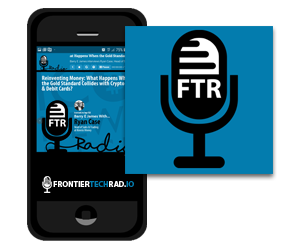

| Season | Episode | Duration | Published |
|---|---|---|---|
| #1 | #37 | 23:08 | 4th October 2018 |
Shaking the bad apples from the ICO tree, self-policing code of conduct changing the world.
Global regulation of the ICO sector has proved contentious, with individual jurisdictions reacting differently to the rise of tokenisation and the need to deal with bad actors and the potential for fraud.
But it is widely agreed across the industry that it can only work if it avoids regulating this creative and passionate sector out of existence altogether.
It became clear early on to today's guest, Simon Taylor, fintech expert from within the traditional banking sector - at Barclays.
With so much happening in the ICO space in 2017, he knew there was a wave coming. One that the regulator might snap at, rather than nurturing the innovation this could kill it off.
During research, he was meeting more and more mainstream banks concerned that tokenisation would become stifled by regulation. They liked the idea of tokenising traditional assets, making the system hugely efficient. And whereas in the early days of blockchain the banks' reaction tended to be a standard 'no', because of propaganda around Bitcoin, in more recent times they have actually started driving the innovation, setting up their own innovation units to explore the possibilities of the technology, and looking to bank the sector.
The answer seemed obvious. As Simon says, in order to engage with risk, you need to know what it looks like. And to reassure the regulator that you know what you're doing, you need to demonstrate you understand what it is you're trying to do!
One thing that became apparent was that the clinical trial methodology which has been applied fintech and other areas of the blockchain space has challenged with bankability, with no chance to do small tests on just a few subjects – banking tends to work on an all-or-nothing basis.
So with a background in creating digital solutions, including the UK's second ever banking app, he founded Global Digital Finance alongside Lawrence Wintermeyer of Innovate Finance.
He felt that it must be up to the industry itself to become self-policing and to create its own Code of Conduct – along the lines of the FX Code regulating currency exchange. So the remit was creating a taxonomy, a common language, and building a principles-based code that is self-policing and run pro-bono.
Similar The same kind of codes have also rolled out in other parts of fintech – peer-to-peer lending for example.
The interim advisory board held a consultation this summer, during which over 200 organisations gave more than a thousand bits of feedback.
The code of conduct will be finalised over the coming months, and the activities within the ICO space carrying risk outside the normal regulatory parameters can be flagged as outside the code. Legitimate entrepreneurs in the token space need to differentiate themselves from the bad actors, and this kind of self-policing model can clean up the sector's image if done right.
A final thought from Simon? If we radically change the infrastructure of operating norms and assumptions within financial services, we can make the greatest difference to every industry and every person alive.
iTunes / Apple Podcasts |
Google Podcasts |
Spotify |
